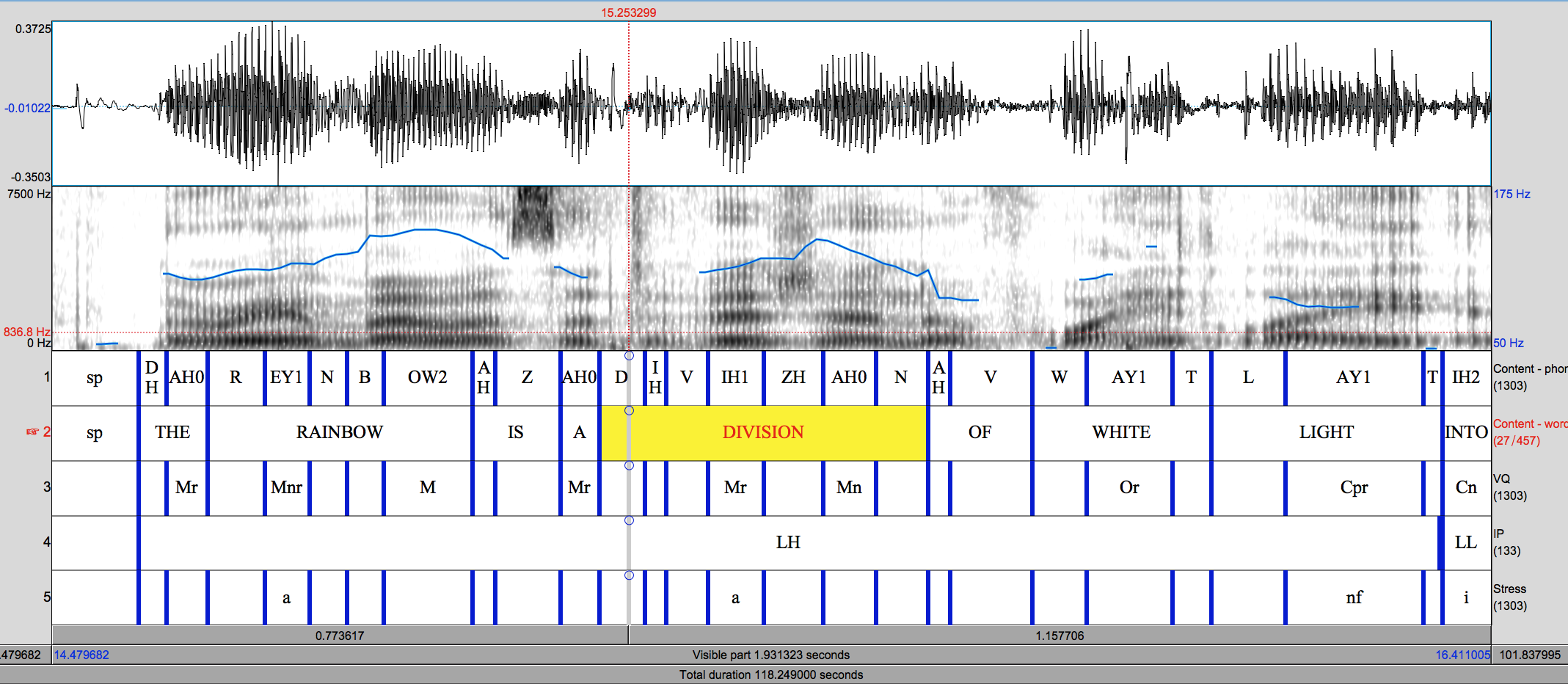Research

The Lab of Linguistics (LoL) at Reed College is the hub for student- and faculty-led research, from class projects and theses to faculty research and faculty-student collaborations. Some of the current projects making use of the LoL are listed below:
Creaky voice and gender identity
Kara Becker, Sameer ud Dowla Khan, and Lal Zimman (now at UC Santa Barbara) are investigating the complex relationship between gender identity and the use of creaky voice quality (often called "vocal fry" in the media). Supported by the Stillman Drake and Summer Scholarship Funds, this project began in early 2014 and is continuing to grow in scope. Our corpus includes acoustic, electoglottographic (EGG), and perceptual data. With help from the Mellon Foundation, most of our data can be accessed and downloaded by the larger community of researchers in linguistics on Dataverse.
Our most recent findings are due to be presented at the American Dialect Society (2017), and previous versions have been presented at meetings of the Linguistic Society of America (2016), the Acoustical Society of America (2015), and New Ways of Analyzing Variation (2015).
From setting up appointments with participants to preparing and coding audio recordings, our team of RAs including Molly Krumholz, Dean Schmeltz, Mani Abreu, Miriam Gölz, Chase Doremus, Lewis Esposito, Ellery Sloane-Barton, and Gregor McGee have been a crucial part of our team. As this is an ongoing project, keep an eye out on the Linguistics Department Blog to see when future RA positions become available.
Oregon English
This project, led by Kara Becker, investigates language use in Oregon, an understudied locale in The West. A forthcoming paper, Variation in West Coast English: The case of Oregon, is co-authored with former Reedies Anna Aden ('14), Katelyn Best ('13) and Haley Jacobson ('13). In it, a production analysis of the speech of 34 Oregonians (collected in 2012), found participation in the General West Coast feature of /u:/ (BOOT) fronting, and some evidence of the low back merger. Oregonians also front /oʊ/ (BOAT) and there is evidence of early participation in the California Vowel Shift (CVS) with change in apparent time that points towards further participation. Additionally, Oregonians participate in /æg/ (BAG) and /ɛg/ (BEG) tensing, suggested to be distinctive features of the Pacific Northwest. Participants who express an Ideology of Non-Accent on a map task are more likely to participate in BAG and BEG tensing and less likely to rotate CVS vowels. Taken together, the results suggest a broader scope for the CVS than has been previously described, as well as provide evidence of dialect diversity in The West that is linked to speakers’ language attitudes.
In addition, Kara is currently working with Richard Adcock ('16) on a set of perception experiments investigating Oregonians' perceptions of one feature of the CVS, the backing of /æ/ (BAT). They received a 2015 Ruby-Lankford grant for summer research on this project, and plan to report soon on Oregonians' abilities to perceive a backed BAT as well as the social meaning(s) they associate with this feature.